1993
1993 September vol. 75, no. 3
Do not fear . . . that here in the C.A.A. mail-room I shall introduce some new scheme favoring facts over theories, or obscurity over fame. My real problem is with numbers, not social fields. In 1919, when The Bulletin of the College Art Association became a quarterly, three books were discussed, two by the Bulletin's editors. The happy conclusion of the very first review was "that America can produce as good catalogues as the European museums." In 1930, a total of thirteen books were reviewed. In 1940, the "Books Received" lists were introduced, from which we can chart the dwindling chances that our books will be reviewed in the journal of our profession: 1940--44 books received, 31 reviewed; 1950--72 received, 21 reviewed; 1960--220 received, 21 reviewed; 1970--414 received, 82 reviewed; 1980--345 received (the list looks partial), 57 reviewed; 1991--510 received, 24 reviewed. Whereas in the 1940s we had about a 50% chance of being reviewed, and in the 1950s, a 30% chance, today we have about a 5% chance. One odd thing about these figures is how in the last two decades the number of books has been rising while the number of reviews has dropped (from about 80 to 20 per year). What can we conclude? That members of art history departments that base tenure on the number of books published ought to be chained to a running copy-machine here in the mailroom, to read and review all 500 books received last year? Certainly. That instead of writing books, most of us ought to develop a difficult hobby (cheese-making, for example)? Perhaps. But what else?"
Koerner goes on to announce a five-year grant from the Kress Foundation earmarked for color printing and extra review pages, and his intention, inter alia, to publish more shorter reviews, group reviews, reviews on non-Western topics, as well as topics "outside of the historical and theoretical mainstream." Koener concludes:
You too would want to have some plan when all these books, brand new and now unpacked, stand ready to "have their fate." Each in its way a marvel of thought and labor, they broadcast their ambitions, and cry out to tell you what they know, while meanwhile their authors wonder whether the sacrifice of eyesight, companionship, and time paid off. I've chosen some of them to send to some of you, the readership, for review. Your task, you know, is thankless. It halts the progress of your book, jeopardizes friendships, angers colleagues, and tests out the tone of your intellect--your principles, generosity, envy, and pride. Yet when else but in reviewing do we historians leave our encampment in the past, our temples, print rooms, and treasuries filled with old things, and judge our present for what it is. Neither the object yet of history, nor the utopia of your unwritten opus, these gleaming books await your notice now."
This page is a tag of:
| Previous page on path | Editor-in-Chief, page 12 of 18 | Next page on path |
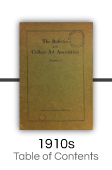




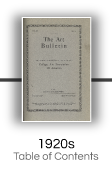





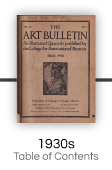



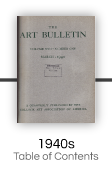




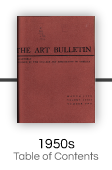



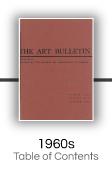




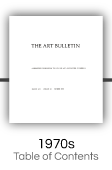


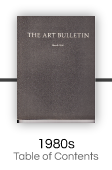



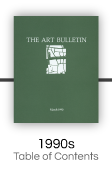




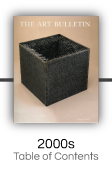




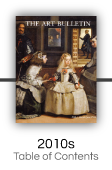


Discussion of "1993"
Add your voice to this discussion.
Checking your signed in status ...